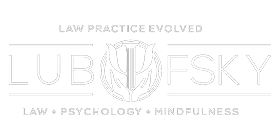Most people seeking mediation services for the first time are doing so in search of less contentious, more cost-effective solutions to conflict. The threshold factors in assessing whether a particular situation is ripe for mediation are the readiness, willingness, and ability of all parties directly involved in the conflict to open and listen to divergent points of view, and actively participate in arriving at a negotiated resolution to conflict.
The active participation of parties in crafting an optimal solution to conflict is the primary distinguishing characteristic of mediation versus formal litigation in the courts. In court, the parties direct all communications to a judge and/or jury who then unilaterally decide how a case will be resolved. In mediation, the parties assume a far more active role in crafting the solution to conflict.
Though all types of mediation share this fundamental distinction from adversarial litigation in the courts, three specific types of mediation have emerged: (1) Facilitative Mediation; (2) Evaluative Mediation; and (3) Transformative Mediation. Each of these mediation types differ along primary dimensions including the needs of the parties, the role of the mediator, and the overriding goal of mediation.
Facilitative Mediation
At a basic level, interpersonal conflict arises when two or more people have different interpretations of a factual scenario that has arisen in the past. Some conflicts (e.g., an accident) have involved perhaps a single event, while others (e.g., a marital relationship) have unfolded over perhaps a course of several years. These past situations become problematic to one or more parties when they are interpreted in a way that violates thought-driven notions of how the other party or parties “should have” conducted themselves during the past event or series of events.
In many cases, these ideas of what “should have” happened in the past violate deeply held notions that have become an integral part of one’s perceived “self.” To the extent this is the case, a party will manifest a strong interest in protecting that sense of self and will react defensively, and often aggressively, when other parties involved in the conflict attempt to justify, or merely explain, their past actions.
These dynamics involving self-protection manifesting in defensive reactions may demand a neutral intermediary who can effectively diffuse this tension to a point at which direct, constructive exchange between the parties becomes possible. In this case, the mediator assumes a facilitative role in fostering constructive communication between the parties. This role is at the heart of facilitative mediation.
Evaluative Mediation
In a second category of mediation, the challenges standing in the way of a negotiated resolution have less to do with interpersonal dynamics between the parties, and are more related to a lack of clarity in likely future outcomes of the relative positions held by each party. In evaluative mediation, the role of the mediator draws on his or her professional expertise in being able to provide parties with a more clear understanding of the legal merits of their respective positions.
Evaluative mediation is more commonly invoked in situations involving complex factual scenarios. In such cases, the parties lack a clear mutual understanding of what arguments are likely to be successful or unsuccessful under currently prevailing case and statutory law and/or legal doctrine. With clarity provided by the evaluative mediator, the parties hope to reach a level of clarity that will position them to negotiate a resolution to their dispute that avoids more costly and contentious adversarial litigation.
Transformative Mediation
Transformative Mediation is available to parties who are interested in seizing the transformative potential inherent in conflict, and using that potential as a springboard for person and/or spiritual growth. Parties explore these higher ideals in transformative mediation in addition to resolving the practical and legal aspects of their underlying dispute.
As was alluded to earlier, factual scenarios tend to rise to the level of “conflict” when they are interpreted in a way that violates one’s conditioned notions of “right or wrong,” or “good or bad” and other dualistic notions that may contribute to one’s core sense of self, commonly referred to as “ego.” The transformative potential inherent in conflict begins with an understanding that these dualistic notions are the result of learned conditioning that in most cases long precedes that salient factual scenario giving rise to the current conflict between the parties.
In this way, conflict manifests a unique opportunity for parties to challenge and transcend many core beliefs that one may come to view as having significantly limited his or her past experiences, as well as adversely tainted past interpersonal relationships.
The transformative mediator will work to create a mediation environment in which all parties can feel safe and comfortable enough to feel, articulate, and explore the antecedents of, and reactions to conflict on a deeper level. In so doing, parties will often come to realize that the way and/or degree to which they have reacted to other parties is actually the result of habitual reactions acquired in response to situations that occurred much earlier in life with little or no temporal relationship to the current conflict.
A skilled transformative mediator works with parties to heighten their understanding and awareness of learned conditioning and habitual reactions. In so doing, parties walk away with the heightened realization that their current decisions and future actions need not be dictated by long-held learned conditioning. In these ways, parties leave mediation with significantly heightened self-understanding, as well as an experienced sense of freedom resulting from the loosened grip of formerly long-held, entranched beliefs.

